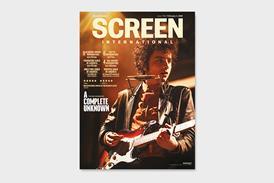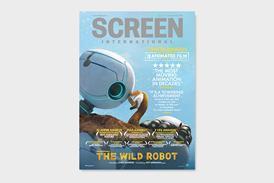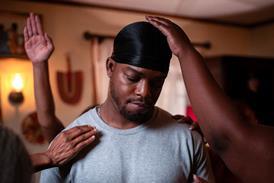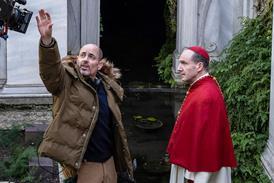Amid the calls for the UK film industry to embrace digital innovation, Arvind Ethan David is concerned about the state of digital literacy in the industry’s entry-level employees.
Like most film companies, we at Slingshot give work experience to a healthy number of interns. Over the years, I’ve taken to interrogating new arrivals about their digital habits: do they Tweet, blog, play MMOGs (massively multiplayer online games)?
What phones do they have and what do they use them for? What RSS feeder are they using to keep up with which blogs? What are they nicking off BitTorrent, with which clients? (Note I don’t ask whether they BitTorrent.)
Can they hack a DVD? I also ask about their work habits: do they share files via Google docs, do they contribute to wikis or use other collaborative software tools?
My expectations of tech-literacy started high. After all, we are dealing with 19-22 year-olds: these are digital natives, right?
That was certainly my experience in my previous life: when I ran an internet business in the 1990s, the teens coming through the door always knew more than I did about the hottest new media tools and trends.
UK lags behind
I’m sorry to report that, at least by my sample, UK undergraduates aspiring to film industry jobs lag dramatically behind their international peers in their understanding of the online world and of technology in general. About half our interns come to us from US universities, and the contrast is startling.
There are a handful of noble exceptions, but let me stress that the film, English and drama students who comprise the vast majority of entry-level applicants to UK film companies are total laggards - downright tech-dunces.
Muggles, basically.
While they have rudimentary PC skills (and even there I have been surprised at the paucity of prowess with software packages as everyday as Excel, PowerPoint, and Project) and have Facebook and increasingly Twitter accounts, the next level of tech-sophistication and familiarity is almost entirely missing.
Moreover, many of these youths take some strange, rueful pride in their lack of tech skills and experience - a mutated version of the “chatrooms and computer games are for geeks, we read poetry, drink wine and wear polo-necks while trying to sleep with each other” attitude that I remember from my own university days, a dozen years ago.
If I had to guess, this counter-intuitive phenomenon seems to stem from the devoutly held UK belief, not limited to the young, that there is a line to be drawn between artist/film-makers and digital technologists.
This line is drawn by the science-arts distinction forced on our students at 16 with A-level choices that pave the way to university.
This creates a dangerous mindset that encourages wannabe film-makers to relinquish what’s arguably their generation’s greatest inheritance - the tools and habits of modern digital technology.
This technologist vs artist conflict (perpetuated in Lord Carter’s distinction between plumbers and poets in the build-up to the Digital Britain report) is, of course, painfully at odds with any historical idea of the film-maker.
The most innovative and successful film pioneers have always blazed creative and technological paths in parallel: from Thomas Edison to Jack Warner, via George Lucas to Jeffrey Katzenberg, James Cameron and Peter Jackson: these innovators are both tech-heads and art-heads. Poets who happily roll up their sleeves to do the plumbing.
This inter-disciplinary, polymath approach is encouraged by the US college system, which allows a much broader mix of arts and science through the undergraduate years and by an attitude that recognises technology as an indivisible part of pop culture - exemplified by Wired magazine and the multi-hyphenate-moguls of both Hollywood and Silicon Valley.
Embracing technology
It’s an attitude that has served the US industry well - and is almost entirely lacking in the UK - and not just in our youth, but also our industry leaders. From desks and laps across Hollywood and New York, the industry is innovating, blogging and tweeting on culture, politics, tech and film-making - from top film writers to producers (Ted Hope), directors and investors.
If anyone can find a personal blog by a UK based film-maker of equivalent prominence to these US examples, please let me know.
If the top of our industry is mainly composed of middle-aged white men who view the digital revolution as an invasion from the future, and the entry rungs are populated by idealistic young poets prevented from knowing HTML from a haiku by a set of false distinctions and an overly specialised education system, then I worry for our industry’s capacity to adapt and innovate.
If we are to agree with Whitney Houston - and I desperately want to - that children are our future, then we would do well to remember the next line of the song: “Teach them well…and let them lead the way.” Until then, we’ll continue to recruit our interns from the US.
Arvind Ethan David is CEO of Slingshot and can be found online at www.slingshot-studios.com/blog and Twitter.com/ArvD




















3 Readers' comments